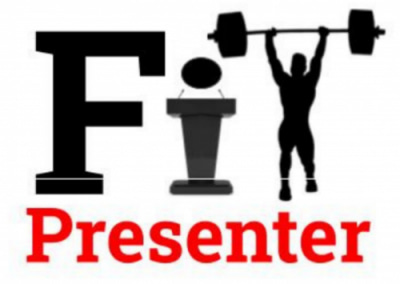What does it mean to be sincere?
If you speak Latin, that makes one of us. What I do know is that the word means “sine” – without – and “cera” – wax. Without wax. A sculptor has to work with stones that are imperfect. They have scratches, dents, pockmarks, and discolorations. Many will coat the final product with wax to give it a smooth texture. The appearance is more refined, but not genuine. A sincere creation will show off its imperfections.
The same rules apply for a speech. You can present the best version of you or the real you. Sincere or wax coated. You can’t have both.

In the speaking world, we see many wax-coated presentations that hide the speaker’s true persona. Sadly, they have become the standard. Business leaders command the biggest stages and therefore have become the template of what a speaker should be. Problem. You might not have the same audience nor the same purpose.
The business world puts a premium on refined presentations rather than on genuine connection. If your speaking heroes are turtleneck-wearing cybergeeks and flavor-of-the-month social media personalities, your definition of the word sincere is about to change.
Business ain’t FIT
FIT Presenter aims to break the rules of conventional discourse and reach the soul and the subconscious of your audience. You won’t find that connection in the business world. The rules of business are written by obedient students who wore striped shirts tucked into their underoos, and who ate peanut butter and jelly sandwiches with the crusts cut off. They followed the rules, got good grades, and now they’re in charge. On stage, they care more about being correct than being able to connect.

An executive must come across as invulnerable and authoritative. Proper presentation decorum is the opposite of sincere. But let’s be honest. If you cared about shareholder meetings and product rollouts, you would rather be reading an AI-generated LinkedIn post about slide decks.

Let’s also deduce (not assume) that you are reading this because you want to level up your public speaking. You might even hire a speaking coach someday. You can easily find a coach to equate formal with professional, overcharge and underdeliver, and call it executive coaching.
Speech coaches are always looking for a niche. The only distinctions of an executive coach are higher fees, fancier clothing on the promotional material, and a presentation devoid of any human connection. A sincere speaker has a more appropriate use of the word executive. Stay tuned.
Ooh yeah, Dig it!
My speaking influences are dirty comedians, professional wrestlers, and a team of convicts from the original Scared Straight documentary. These raw, bare bones practitioners of the English language can speak circles around yesterday's teachers' pets who now manage from the conference table. Ali with one eye can reach into the hearts of wayward youth and change lives more than any cheap street preacher.
I would put George Carlin ahead of any Ivy League philosophy professor to explain humanity’s true intentions. Nobody can stand on stage and sell an event better than a pro wrestler convincing you to buy a ticket to the next show. If you’re too good for the Macho Man, then I hope the following story offends you to the bone marrow.
The Executive lane
Competitive distance runners can appreciate this story. At a road race, the most popular rally point 30 minutes before the race is the line for the port-o-jons. The half marathon in Danbury, Connecticut has an actual indoor bathroom. Score! There was only room for one line for the men’s room, even though we have the male privilege of two options. A few times there were people waiting to stand and deliver but didn’t know that the stall was open.
Somebody shouted, “There’s a urinal open!” You could hear Chariots of Fire playing as the man stepped up to straddle the porcelain.
In the interest of subtlety, I suggested, “Let’s call it the express lane.”
“Good idea. What about the other lane?”
I thought for two seconds. “The executive lane!"
If you make your way to the front of that line and find yourself alone on the throne, then the eagle has landed. You have reached executive status. No need to wax coat your professional credentials or your flat earth presentation skills. You are already there. I offer my sincerest congratulations.

Sincerity begins with language
Now that we have established that refined self-exaltation leads to insincere communication, what does it mean to be sincere? How do you show them the real you? Do you have to imitate the Macho Man and tell bathroom jokes? No, you don’t. I do, but you don’t. We begin with your conversational tone.
What do you think is the reading level of this article? I aim for the eighth grade. That is not to insult your intelligence, but rather to allow you to read quickly. If you need a dictionary or a search engine to understand me, then I failed to connect. The same standard for reading level carries across most print and online news media.
As an exception, the New York Times writes somewhere around the 12th grade reading level. That means long sentences, big words, and obscure references to history and literature. Their higher writing standards attract the best journalists and weed out the less capable, but in the end the stories often come across as snooty and in some cases insulting to their readers.

The audience has even less time to process spoken words. When it’s your show, it’s time to pull back the wax. Make the audience forget that they’re sitting in a rickety folding chair next to somebody who breathes really loud and makes chewing noises just for fun. Make them hear your words as if they come straight from your mouth and not through a PA system. Make them live your story and your lesson. That connection comes from conversation. And from putting the focus on the audience.
The vertical pronoun
You can hear some of the most compelling stories at a support group with the word “anonymous” tied to it. Those stories of despair and redemption will leave the group in tears, but never be held in high regard as great storytelling. Do you know why? One, because the speaker is anonymous. Also, for the pure first person narrative. A share is therapy for the speaker, not the group.
You will often see the same self-centered dynamic in a ted talk (lowercase letters intentional). Ted speakers live for following the script, facing the camera, and striking the right pose for marketing materials. If the only takeaway from your speech is that you are special or interesting, then the audience will forget you.

To connect as a sincere speaker, the audience must be the protagonist of your speech. You can be the main character of your story, but the overall purpose for speaking is to serve your audience. Ultimately, the most important word for a speaker is “you.” Always in the singular form. Keep the vertical pronoun to a minimum. I didn’t say you can’t use it at all, just don’t be the singular focus of your story.
Remember, you’re kinda mortal
Plain language and “you” focus capture the audience's attention. Once captivated, the people stay with you when you show that you are vulnerable. Many speakers are not willing to let their guards down. In the Toastmasters International speech contest, overconfident speakers will refer to that one time in their lives when they were wrong, as if it were the only time. Holier than thou speakers often win lower levels of the contest, but will eventually lose to a sincere, scarred, scraped, and flawed human being with a better message.

Lesson planning at its finest. Let the audience see (some of) your flaws!
Embrace the irony
In a previous article, I refer to William Shakespeare, the sincerest wordsmith of his time. By today’s standards, his iambic pentameter and parallel verses make for awkward conversation. So, instead of saying “Brevity is the soul of wit,” let’s say “Keep it short and sweet.”
Ironically, this is the longest post on the FIT Presenter blog. You have made it this far, and I offer my sincerest thanks. Speak in a conversational tone, lower the reading level to challenge your audience intellectually rather than linguistically, and present yourself as occasionally flawed.
Speaking of flaws, some linguists doubt the origin of the word “sincere” as presented in this article. If you’re one of those people, go analyze a sonnet. Count all 14 lines and check the rhyme structure. While you’re at it, air your grievances to a Shakespearean bust, and be sure to check it for wax-covered cracks. Sincerely, the FIT Presenter.

















Book a spot on my calendar. I'm very sincere about that.